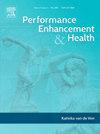德国和奥地利的电子竞技协会:社区满意度的比较研究
IF 3.7
Q2 HOSPITALITY, LEISURE, SPORT & TOURISM
引用次数: 0
摘要
研究调查了人们对电子竞技监管和制度化的看法;然而,对这些新成立的组织的社区满意度(CS)知之甚少,特别是在跨国背景下。本文考察了德国和奥地利电子竞技社区对国家电子竞技协会的满意度。德国的ESBD和奥地利的Esport Verband Österreich (ESVÖ)是合适的案例,因为它们的结构相似,但规模和运营历史不同。采用双重方法,对22位专家进行了访谈(14位来自德国,8位来自奥地利),重点关注电子竞技的发展和现状(研究1)。调查结果提供了一份在线问卷,该问卷收集了来自两国电子竞技社区的425份回复(研究2)。研究结果表明,两国电子竞技的全球增长、接受度和专业化程度都有所提高。答复者认为ESBD的影响很小,而ESVÖ则被视为影响有限的政治接口。奥地利参与者报告说,他们对这种关系的认同和满意程度更高。然而,感知归属感和利益在国家之间没有显着差异。电子竞技俱乐部的会员资格是总体满意度的关键因素,以及居住地。诸如年龄、性别和每周玩游戏的时间等预测因素并不总是显示出显著的影响。总的来说,对这些联系的认识与所有社区成员之间更强的归属感相关。尽管协会有可能塑造电子竞技的未来,但它们之间在CS方面存在明显的差距。为了解决这个问题,协会应该把重点放在提高知名度和激励个人成为会员上。本文章由计算机程序翻译,如有差异,请以英文原文为准。
Esports associations in Germany and Austria: A comparative study of community satisfaction
Research has examined perceptions of esports regulation and institutionalization; however, little is known about Community Satisfaction (CS) with these newly established organizations, particularly in a cross-country context. This article examines the esports community's satisfaction with national esports associations in Germany and Austria. Germany's Esport-Bund Deutschland (ESBD) and Austria's Esport Verband Österreich (ESVÖ) serve as suitable cases due to their similar structures but differing sizes and operational histories. Using a two-fold approach, 22 expert interviews (14 from Germany, 8 from Austria) were conducted focusing on esports development and the current landscape (Study 1). Interview insights informed an online questionnaire that gathered 425 responses from esports communities in both countries (Study 2). Findings indicate global growth, increased acceptance, and professionalization of esports in both countries. Respondents perceived minimal influence from the ESBD, while the ESVÖ was viewed as a political interface with limited impact. Austrian participants reported greater Identification and Satisfaction with their association. However, perceived Belonging and Benefit showed no significant differences between the countries. Esports club membership was a key factor of overall satisfaction, as well as residence. Predictors such as age, gender, and hours per week playing did not consistently show significant effects. In general, awareness of the associations correlated with a stronger sense of Belonging among all community members. Despite the potential of associations to shape the future of esports, there is a noticeable gap in CS between them. To address this, associations should focus on increasing their visibility and creating incentives for individuals to become members.
求助全文
通过发布文献求助,成功后即可免费获取论文全文。
去求助
来源期刊

Performance enhancement and health
Social Sciences-Health (social science)
CiteScore
4.70
自引率
0.00%
发文量
27
审稿时长
57 days
 求助内容:
求助内容: 应助结果提醒方式:
应助结果提醒方式:


